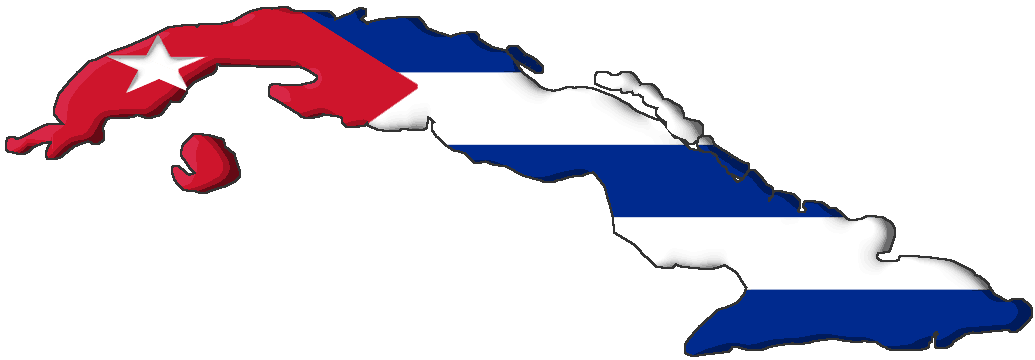

One year ago, U.S. President Barack Obama admitted what the world already knew. In five decades, the genocidal blockade of Cuba had failed to achieve the stated U.S. objective: overturning the Cuban socialist revolution. The Cuban people, their mass organizations and unions, with the leadership of the Cuban Communist Party, have held firmly to their principles of solidarity, internationalism and the priority of developing human beings as the goal and purpose of society.
Since the Jan. 1, 1959, revolution overturned the U.S.-backed Fulgencio Batista dictatorship, those principles have remained the bedrock of the Cuban revolution. Now Cuban officials calmly reiterate that socialism, sovereignty and self-determination are not negotiable. The Cuban people have overwhelmingly voted, supported and defended these principles. Everyone should believe it.
The advances in Cuba-U.S. relations this past year happened only because the U.S. released the three Cuban state security agents. The Cuban 5 are now fully reunited with their families. This includes Gerardo Hernández, whom U.S. courts had sentenced to two life terms plus 15 years.
The recent book “Back Channel to Cuba,” by Peter Kornbluh and William M. LeoGrande (University of North Carolina Press, 2014), documents that Cuba has forgone better relations with the U.S. rather than concede on a matter of principle. Consider Cuba’s internationalist aid that 40 years ago ensured the independence of Angola and the later defeat of racist apartheid in South Africa and the release of Nelson Mandela.
Normal relations? Not with blockade in place
Certainly, there are now mutually respectful direct discussions and negotiations. Cuba was removed from the U.S. “list of countries sponsoring terrorism” — a spurious unilateral and self-serving list that should never have included Cuba, itself having endured terror attacks from U.S. soil. There are agreements to resume direct postal delivery, protect the environment and reports that commercial flights will soon replace the many mostly Florida-based charter flights.
There is a Cuban ambassador at a Cuban Embassy in Washington, D.C., with a Cuban flag proudly flying. And a U.S. Embassy in Havana.
The rapid pace of visible changes in U.S.-Cuba relations over the past year overshadows the fact that the economic, commercial and financial blockade is still in place. Cuba still cannot use U.S. dollars in international trade and the extraterritorial provisions continue to penalize international banks for Cuba transactions and chill otherwise legal transactions. U.S. law still expressly prohibits U.S. residents from admitting they are vacationing in Cuba.
In his Dec. 17 statement, Cuban President Raúl Castro said, “The persecution of Cuba’s legitimate financial transactions as well as the extraterritorial impact of the blockade, which causes damages and hardships to our people and is the main obstacle to the development of the Cuban economy, have been tightened.” (cubaminrex.cu)
Granma reported that Cuba’s chief negotiator, Josefina Vidal, “recalled that the U.S. president has broad powers to change the situation and could ‘expand the scope of these measures or take others.’
“She specifically noted that Obama could allow Cuba to use the dollar in international transactions, access private credit and permit trade in both directions, and not unilaterally as has been the case to date.
“She added that no progress has been made this year on key issues for normalized relations, such as an end to the blockade, the return of the territory illegally occupied in Guantánamo, the end of subversive programs and illegal broadcasting, and the continued preferential migratory policy toward Cubans that encourages illegal migration.”
Washington says the preferential immigration policy for Cubans who reach U.S. soil will remain — regardless of how they arrive. The Cuban Adjustment Act’s “wet-foot dry-foot” provisions reward dangerous migration from Cuba either by raft or through Latin America via human traffickers.
Recognizing that the people of Cuba are among the most highly educated in the world, the U.S. government continues its brain-drain policy called “Medical Professional Parole.” This program attempts to entice Cuban doctors to abandon international assignments. In sharp contrast, Cuban medical schools train thousands of doctors from around the world, including from underserved U.S. communities, and then send them back home.
Hands off IFCO
Even as U.S.-Cuba relations change, the U.S. government has launched an attack on one of the organizations in the U.S. most consistent in its solidarity with Cuba. Washington has threatened the Interreligious Foundation for Community Organization’s tax-exempt designation. IFCO has supported the 27 Pastors for Peace Friendshipment caravans to Cuba. For more information, see ifconews.org or tinyurl.com/gmpeyda.
Cuba’s supporters in the U.S. insist: “We cannot allow the United States to continue with its 54-year-old failed policy to destroy the Cuban Revolution. We use this day, December 17, to again demand that the United States illegal blockade be lifted and that the United States respect the sovereignty and self-determination of the Cuban people. As co-chairs of the National Network on Cuba, we call on all U.S. solidarity organizations to continue working firmly and united until the blockade is lifted.” See the full NNOC statement at NNOC.info.
A graphic remembrance of Dec. 17, 2014 is at: theInternationalCommittee.org/timeline.
LaBash is one of the National Network on Cuba co-chairs.
May 19, 2025, will mark the 135th birthday of the great Vietnamese leader Ho Chi…
Philadelphia Honoring the 11 people murdered by the state when they dropped a bomb on…
The centennial of the birth of Malcolm X, also known as El-Hajj Malik El-Shabazz, is…
On May 11, which was Mother’s Day this year in the U.S. and several other…
Philadelphia On Mother’s Day 2025, May 11, Families for Ceasefire Philly and over 20 local…
North Philly Peace Park gathering After a federal court hearing on an anti-immigration bill early…